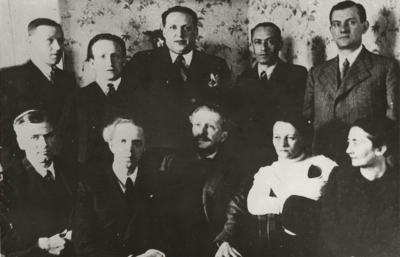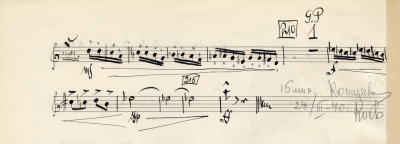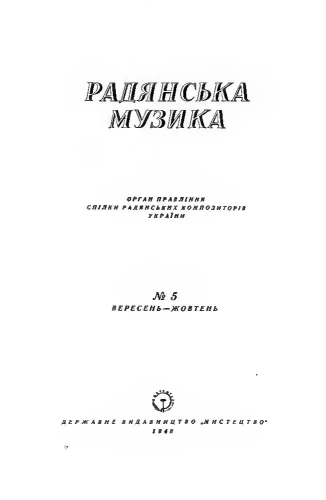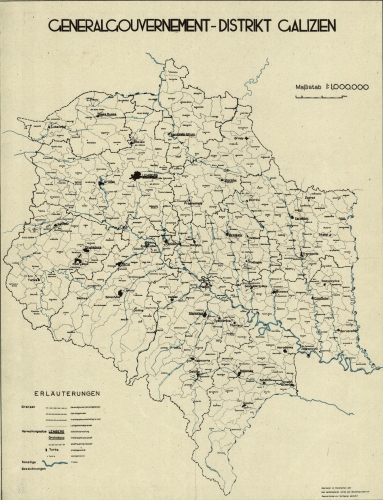Lwów was first occupied by the Soviets between September 1939 and June 1941. The new communist authorities immediately began radically to reorganise the city’s cultural life. The existing music schools were closed, and Lviv State Conservatoire was established in their place (in the PTM venue).

Under the Soviet and German Occupation in Lwów / Lviv / Lemberg (1939–1941)
On the new school’s faculty were some of the prewar professors, including Józef Koffler and Adam Sołtys, and Koffler's wife – Róża (as a piano teacher), The new authorities granted Koffler the title of professor and appointed him deputy rector of the Conservatoire as well as head of the Chair of Composition at the Composition Department whose dean was Zofia Lissa.
The new authorities granted Koffler the title of professor and appointed him deputy rector of the Conservatoire as well as head of the Chair of Composition at the Composition Department whose dean was Zofia Lissa. As a token of recognition, he was also selected to represent the Lviv Conservatoire at an Assembly of the Union of Soviet Composers in Kyiv (1940), where he was accompanied by two Ukrainian composers (Stanisław Ludkiewicz/Stanyslav Lyudkevych, Wasyl Barwiński/Vasyl Barvinskyi) as well as other musicologists and composers, such as Wasyl Witwicki/Vasyl Vitvitskyi, Seweryn Barbag, Zofia Lissa, Tadeusz Zygfryd Kassern, and Adam Sołtys. Koffler’s Symphony No. 2, Op. 17 was performed at the Kyiv Assembly.
In 1940, Koffler published in Sovetskaya Muzyka a critical reappraisal of his prewar music as viewed from the perspective of the new ideology. It was, however, a forced statement. One should consider his compositions from that period in the same light – as works written in line with the demands of the new authorities though not necessarily in agreement with the composer’s own will and ambitions. They are works drawing on Ukrainian folklore, which Koffler never referred to before 1939. Two pieces of this type were published in Kyiv in 1940–1941. Notably, despite Koffler’s recognition by the Soviets, in a list of Lviv State Conservatoire teachers compiled in April 1941 both Józef and Róża declared their nationality as Polish.
Nazi Germany’s military expansion meant that from late June 1941 Lwów (renamed as Lemberg again) was occupied by the Germans and became part of Distrikt Galizien (established in August 1941). The music conservatoire was closed down, and its venue became a military hospital. Musicians and musicologists of both Polish and Jewish nationality lost their jobs. The Lwów (Lemberg) ghetto was formed in September 1941, and by decree all the Jewish population was obliged to move there by 15 December. Koffler, now deprived of his academic job, continued to live in his elegant flat with his wife and son until at least the end of 1941. On 19 December, he wrote a letter to Prince Andrzej Lubomirski, PTM’s president in Lwów before the war, who had an estate in Przeworsk (near Rzeszów). The letter contained a declaration of the composer’s national and religious identity (he wrote it as a Pole and a Catholic). He asked Lubomirski to provide shelter to him, his wife, and his six-year-old son.



